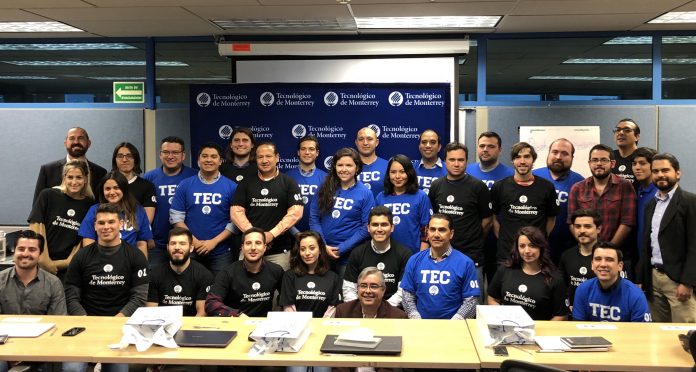The Risk That Paid Off: How Vero Vélez Dropped Everything and Landed a Job at IBM

Technology moves fast these days—and if you don’t keep your skillset relevant, it can quickly outpace you. That’s what Verónica “Vero” Vélez discovered when she tried to return to IT after a long absence. It wasn’t as simple as getting back in the saddle; she had to re-learn everything she knew.
But Vero knew she needed a change, and was willing to uproot her whole life to make it happen. That’s when she discovered the coding boot camp that changed her life forever.
Here’s how Vero bridged the gap between where she’d been and where she wanted to go—discovering a community in the process.
Making the jump
After nine years at her oil and gas engineering job, Vero had had enough. She worked in a steady rotation—five weeks on, five weeks off—that basically ensured she would have no work-life balance.
“It was really demanding. I traveled a lot and basically never worked in my home country,” Vero said. “I had no home, no stability, no life really.”
So she decided to make a change—starting by quitting her job. She considered pursuing IT, like she’d done years prior, but technology had advanced so much that she didn’t have the right skills to land a job. Her next move happened out of chance. Idly browsing the internet one day, not knowing what to do, she stumbled upon the Tecnológico de Monterrey Coding Boot Camp.
“It was the first time I’d seen something like this in Mexico,” she said. “I have two brothers who are developers. I showed them the program and they said it would work really well for me.”
The only catch? Vero lived in Mexico City—a nine-hour drive from Monterrey.
Finding her niche
Undeterred by the distance and recognizing the potential this opportunity held, Vero decided to dive in. “It was time to make a change, to actually make a life for myself,” she said. So she packed up her life—home, possessions, dog, and all—and made the move in just 20 days.
The relocation was hard enough, but the boot camp itself presented challenges of its own. On top of learning coding, Vero was earning her masters in project management. Every night, she would have piles of work to get through. What’s more, she was alone in a new city, far from her friends or family.
But after a few weeks in the boot camp, Vero started to find her place. “At first I couldn’t really relate to the people in the course,” she said. “I ended up sitting next to this one girl. We started to lean on each other to get through the course—and now she’s a really great friend of mine!”
Even though it had been years since she worked in IT, Vero’s brief experience in the field gave her a solid baseline for a lot of course material. In some lessons, Vero even mentored and helped her fellow classmates. She was excited to support her new community—just as they supported her.
A team effort
When it came time for the group projects, Vero was ready. For her first project, her team created a drink mixing app. The second helped people coordinate parties, meetings, or hangouts. The final project was built to help gamers find like-minded people to create teams.
Though she’s not a gamer herself, Vero recognized the value of the third project—and she wasn’t alone. During the presentation, the audience raved at its connectability, and said it had great potential for commercial sales.
Vero’s group projects and her own experience at boot camp are a testament to the way technology can be used to bridge the gap between people. “Tech can really help bring people together. It makes it easier to focus on what’s important to you,” she said.
The skills to go the distance
Throughout the boot camp, Vero worked diligently on her studies, on her masters, and on finding a job. Using the boot camp’s resume builder services, Vero was able to optimize her CV and eventually land a job at IBM as a group leader for Java—a month before the boot camp graduation.
Now back in Mexico City and happily settled at IBM managing a team of people, Vero is leaning on her boot camp experience to succeed in her new job—specifically the patience and teamwork it taught her. Her favorite part about learning coding is being able to better serve her team.
“People come and say they have issues with X or Y, and I know what they’re talking about,” she said.
But the biggest thing she learned was that it’s worth taking the risk—and that you’ve got to stick with it.
“Don’t be afraid to make that change, it’s really never too late,” she said. “You can start with whatever skills you have, and if you stick to it and do the work, you’ll succeed.”

 Live Chat
Live Chat